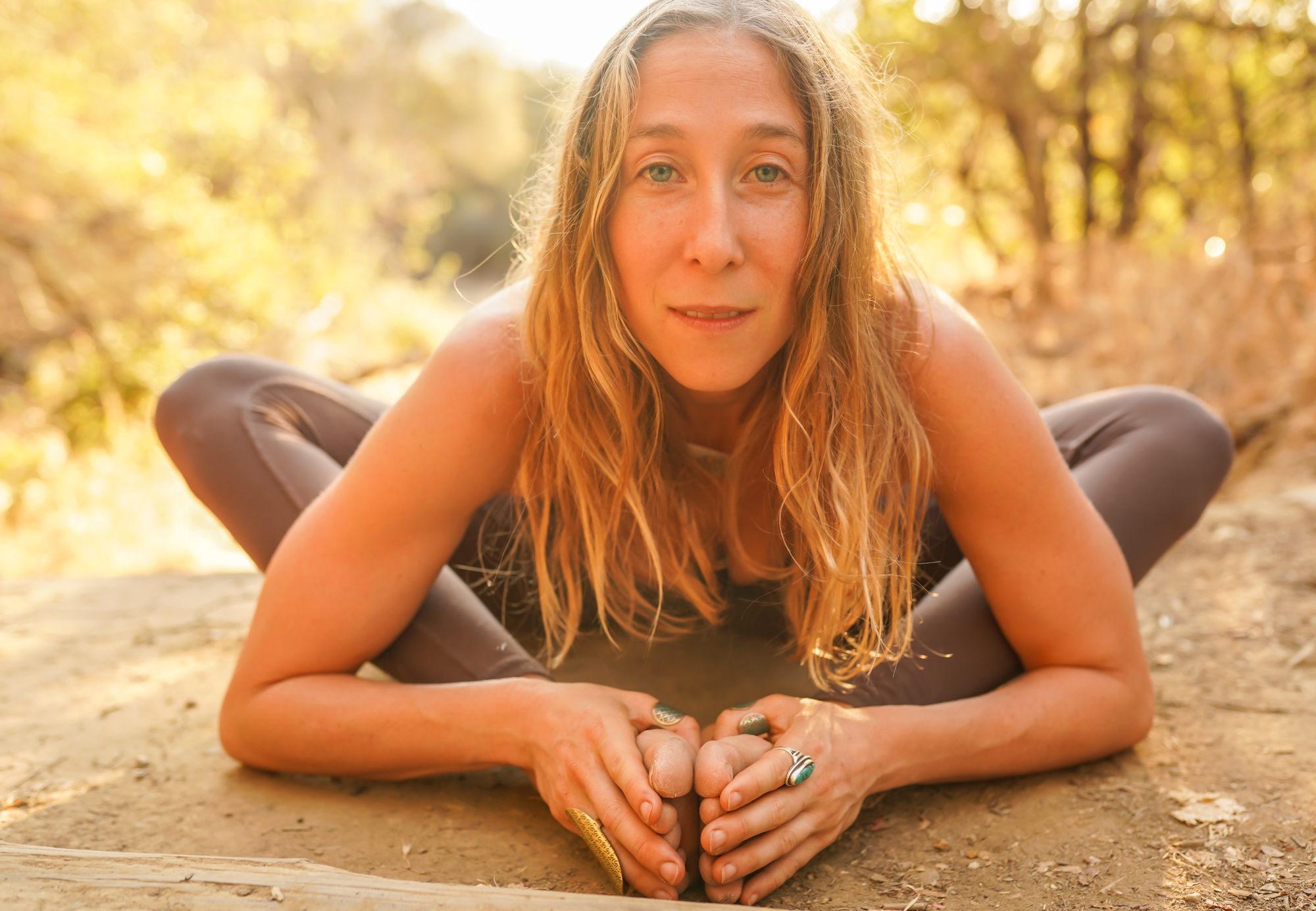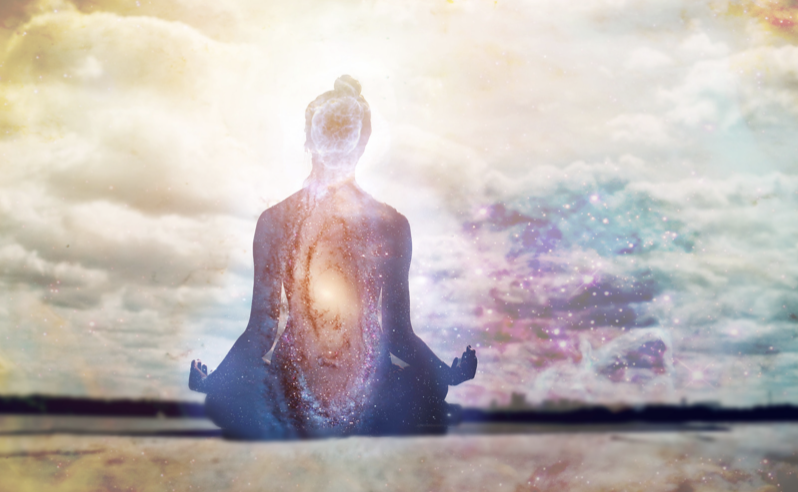“I beg you to have patience with everything unresolved in your heart and try to love the questions themselves as if they were locked rooms or books written in a very foreign language. Don't search for the answer.... Live the questions now.”
-Rainier Rilke
In Buddhism, there is a Dharma Principle we call “Basic Goodness”. It pertains to the fact that inside each of us is a wellspring of truth and beauty and wholeness. That we are each inherently good, irrespective of any mistakes we’ve made, or shortcomings. That underneath the congestion or confusion of daily life, there is an inner radiance which serves as a resource we can always tap into for clarity and openness.
Sometimes, Buddhists refer to this as our “Buddha Nature.”
Isn’t that relieving to hear? Or to be reminded of? Each of us can benefit from reading this, hearing this, or absorbing this content in some way that provides relief to all those inner parts of our psyche that don’t believe it is so. These qualities are already within you, and there’s nothing you need to do to “cultivate” them. At your most fundamental essence, you are Present: you are awake, vibrant, open & easeful.
Presence, as some call Awareness, is simply the quality of sensing what is so. This doesn’t require peaceful conditions around you. Presence is always there even if you have a cold, or you’re mourning, or there is road traffic, or a loud neighbor. You don’t need to heal to become present, or leave your grief behind, or find silence around and within you. In fact, the manipulation of circumstance has nothing to do with the state of becoming aware. Whatever is occurring in each successive moment is the exact set of circumstances needed in order to meet life as it is now.
How do we know this you might inquire…
Because it’s what’s happening NOW.
This includes suffering.
This includes wondering what you’re going to have for lunch.
This includes rapture with the sensations of each passing breath.
This includes not knowing where to go next.
As Tory Packer has famously said, “Unconfuse yourself by just not knowing.” In the interest of infusing presence into our lives, we empty ourselves of what we think we know. This comfortability with uncertainty is a wisdom. Let the unknowing exist, as the experience of uncertainty can be medicinal. It strengthens us to find stability and security irrespective of external stimulus or chaos. As we find the internal center, there is a ground of being beneath which we can always return to. We can call this, the “Presence of our Buddha Nature”
“The Buddha” is a historical example of what we can be. Buddha is a term that means “the awakened one,” meaning the one who vividly sees, in a clear awake way, who they really aware. So to be a Buddha is continuous process of removing armor that you might have been carrying, some illusion that was protecting you from something, only to find its actually shielding you from being fully alive and awake.
And here’s a beautiful thing – everything you meet shows you where you still have armor that could be removed to live more freely. A yoga or meditation practice, then, largely requires a willingness to continuously acknowledge or reconnect with your wakeful nature, and remove the armor that covers your wisdom and gentleness.
Awareness is not trying to become something we aren’t, rather we’re returning to who we truly are.
This practice of returning to your Presence is so powerful it cannot be diluted by anybody, not me and my convictions or ideals, not the bikini-clad Instagram influencer in crow pose, not your parents, not your boss, not your partner. Nobody.
When we unroll the yoga mat or we sit in meditation and we put our hands together and we open to transformation, transformation occurs. We naturally traverse towards evolution, refinement. We just have to get quiet, get still, and get out of our own way.
Presence is simply the act of aligning with your wisdom nature. Your Buddha Nature.
It is always there.
In essence, presence is just remembrance. We humans tend to complicate things, but the simple truth of our nature is that we are inherently good. Each one of us innately has “Buddha Nature.” Despite whatever wrongdoing you’ve done, the ways you’ve fallen short – irrespective of our mistakes and our miseries –we were born with a depth of wisdom that is benevolent, intentional, kind, and gentle.
This recognition of our own divine perfection is a prerequisite to awaken our own heart's mission to generate lovingkindness for others. It’s impossible to see the divine in others, have true peace and understanding with others, if you don’t experience the presence of your own Buddhahood first, directly, consistently. As you kneel at your own inner altar and find the sacred there, you welcome the whole world into the appreciation of divinity.
“Then it was as if I suddenly saw the secret beauty of their hearts, the depths of their hearts where neither sin nor desire nor self-knowledge can reach, the core of their reality, the person that each one is in the eyes of the Divine. If only they could all see themselves as they really are. If only we could see each other that way all the time. There would be no more war, no more hatred, no more cruelty, no more greed. … I suppose the big problem would be that we would fall down and worship each other.” - Thomas Merton
It starts with worship of the self. With a loving tolerance for wherever you find yourself now.
In the midst of turmoil, we can turn towards this remembering of our spacious inherent nature. But if we want to draw upon our inner resources for stability and ease in the face of the impending unknown, when difficulty or tragedy strikes, we’ll need to have a practice space, an enlivened field, where we can play with it, rise it out of us, so we know how to get back to it when we need it. As you settle in to a meditation or perhaps a long held yoga pose, you can venture to the heart where the qualities of your Buddhahood can be directly felt and known. This routine of returning to the self helps us be more willing to face the unknown, and we practice now because we don’t know what will be asked of us ahead. In this way, each moment is meaningful in its invitation to wake up. The “nowness” of awareness is always available.
And you are good.
Here’s a short meditation practice to return to this Presence of your Buddha Nature:
As you sit, allow yourself to sit with a sense of dignity and gentleness. Remind yourself that whatever is going on in your world right now, even in the midst of suffering, it is possible to bring your awareness to the good qualities within yourself and allow them to deepen. Then, you can practice mindful breathing for a few minutes to remind yourself of your Buddha nature, of the great compassion and understanding in you. Each breath, you can choose one of the below sentences:
• Breathing in, I am aware that I am breathing in. Breathing out, I am aware that I am breathing out.
• Breathing in, I am in touch with the energy of Presence in my body. Breathing out, I feel connected to this Presence.
• Breathing in, I am reminding myself that I am a good person. Breathing out, I feel nourished by this energy of goodness in me.
• Breathing in, I am drawing upon the wisdom in every cell of my body. Breathing out, I respect the energy of wisdom in me.
• Breathing in, I feel Peace. Breathing out, I allow that Peace to flow through my body
• Breathing in, I am in touch with my Buddha Nature. Breathing out, I remember it is always there.
O Nobly Born, O you of glorious origins, remember your radiant true nature, the essence of mind. Trust it. Return to it. It is home.
—The Tibetan Book of the Dead
Guest post by studio BE Faciliator Kali Basman.
Internationally celebrated Dharma teacher of teachers, Kali Basman, blends Buddhist Psychology with mindful based Yin & Restorative Yoga.
Kali’s work intermingles the outer constructs of anatomy & Traditional Chinese Medicine with the inner methods of mind training and trauma healing. She is certified and celebrated in her work with Internal Family Systems Therapy. Outside of practice life, Kali holds an MPH in Environmental Public Health and serves as a Project Director for the United Nations Association Global Health Initiative on the Africa Affairs Committee. She has been working with the UN as a Global Health consultant for over 5 years.


